“Broker? I thought it was a salesperson license?”
“Isn’t there just one real estate license?”
“What difference is there between a leasing agent and broker?”
“I thought I would get my license after passing your course.”
If you aren’t already involved in some way with the real estate market, chances are you have absolutely no idea where to start when it comes to finding out more information on obtaining your license, what the class content will be, and what being a broker will require out of you. So, we’ve simplified all information into a quick, informative blog post.
About real estate licenses:
Prior to 2012, there was a Salesperson license that you could obtain, which would allow you to sell residential or commercial properties. After 2012 however, the state of Illinois changed the Salesperson license to the Broker’s license and continued the Leasing Agent license. “Real estate license” refers generally to any one of the 2 real estate licenses available in Illinois; “Leasing Agent” or “Broker” specifies the license. If you are ready to take the plunge and start working toward your real estate licensure, go and attend a Real Estate Agent License Course class.
WHAT IS A BROKER?
A broker is a licensed real estate agent who can BOTH rent and sell COMMERCIAL (offices, restaurants, etc.) and RESIDENTIAL (homes, apartments) properties.
Requirements:
- Must be 21 years of age or older
- Have a high school diploma or GED equivalent
- Have a social security number
- Successfully pass a Pre-Licensing course at an IDFPR approved school
- Successfully pass the state exam
WHAT IS A LEASING AGENT?
A Leasing Agent is a real estate agent who can ONLY RENT residential properties (houses, apartments).
Requirements:
- Must be 18 years or older
- Have a high school diploma or GED equivalent
- Have a social security number
- Successfully complete a Pre-Licensing course at an IDFPR approved school
- Successfully pass the state exam
WHAT IS A REALTOR?
A REALTOR is a licensed real estate agent who has paid a member fee to join the National Association of REALTORS. Many people think that if you are a Leasing Agent or a Broker, then it means the same thing as being a REALTOR. This is NOT true. You can be a real estate agent and NOT be a REALTOR if you haven’t paid any member fees and joined the association.
Real estate agents become REALTORS because it adds prestige to your name in addition to providing you additional resources for you to use when it comes time to helping a client. REALTORS are held to a higher ethical code than are regular real estate agents and they have access to the Multiple Listing Service (MLS), which is a huge database with hundreds of different properties put on the market by other REALTORS.
To learn more about becoming a REALTOR, visit https://www.nar.realtor/
WHAT WILL I LEARN IN REAL ESTATE COURSES?
In both Leasing Agent and Broker’s courses, you will be learning about the real estate market, laws that govern the way real estate is sold, how to calculate property taxes, what a contract is and how to properly complete one, radon and lead disclosures, math such as figuring out commissions, lot sizes, cap rates, and selling prices, and so much more. Like any course, our pre-licensing classes will require lots of reading and studying in order for you to retain all the information taught to you. If none of the things mentioned in this paragraph interest you even in the slightest, then maybe real estate is not for you.
WILL I BE LICENSED AS SOON AS I PASS YOUR COURSE?
Our course will only satisfy the education requirements that the state requires in order to be eligible to sit for the state exam. After passing our course, you must register with Go AMP in order to schedule your state exam and you must pass the state exam in order to be eligible to receive your license.
Contact www.goamp.com for more information regarding testing dates, facilities, etc.
There will be a licensing fee you must pay to the state of Illinois to receive your license, which varies from Leasing agent to Broker.
Contact the Illinois Department of Financial and Professional Regulations (IDFPR) at www.idfpr.com for more information on licensing fees.
WHAT WILL MY JOB ENTAIL ONCE I HAVE BECOME LICENSED?
Once you have become a real estate agent, you should expect to be doing LOTS and LOTS of cold-calling, research, emailing, property searches, and showings. Remember, you will be new to the market so you have to advertise yourself and your services. You have to convince people that YOU are the best person to help them in their search for a new apartment or buying/selling a property. Whenever people make real estate transactions, they are investing a lot of time, and especially, money into it, so people will be extremely picky in who they choose to help them with this important transaction. Make sure you have cards to pass out, a professional email, a working phone number where you can easily be reached, and lots of enthusiasm and persistence!
WHEN CAN I EXPECT TO MAKE MY FIRST COMMISSION CHECK?
Establishing yourself as a worthy real estate agent is going to take you some time. We always let our students know that most people, on average, do not make their first deal until 6 months to a year after they have started practicing. You should keep in mind that you will get out of this as much as you put in; the harder you work and the more time you dedicate to your work, the faster you will see money.
Once you receive that first check, however, you will have learned the ins and outs of real estate and will have an easier time making money.
